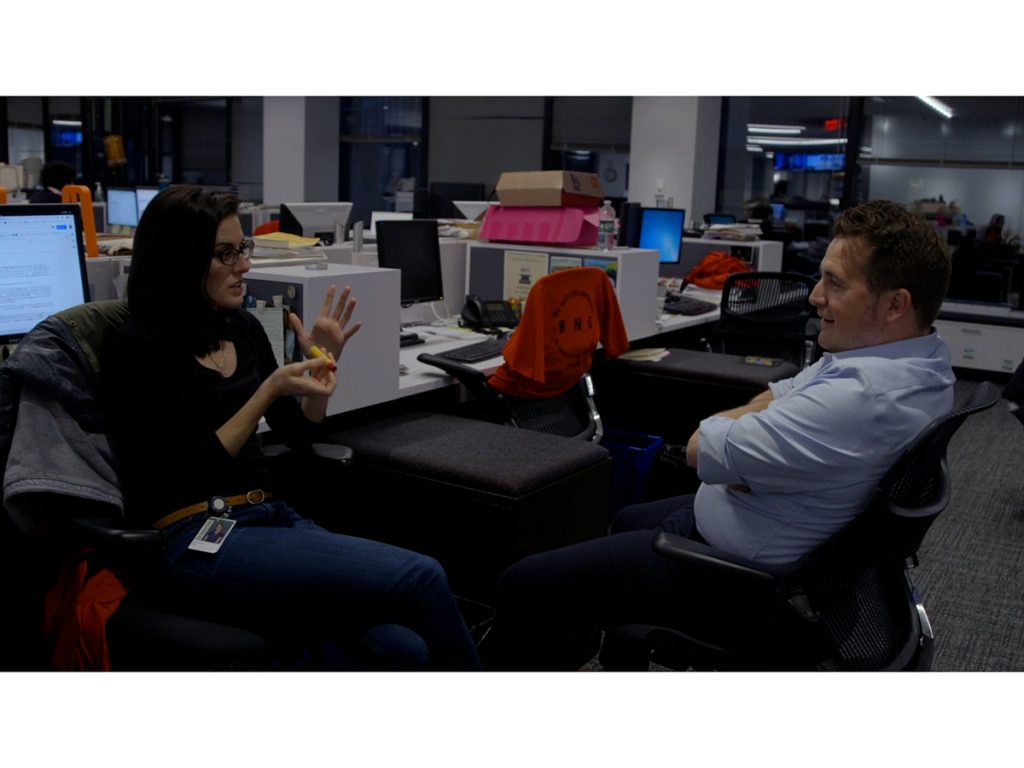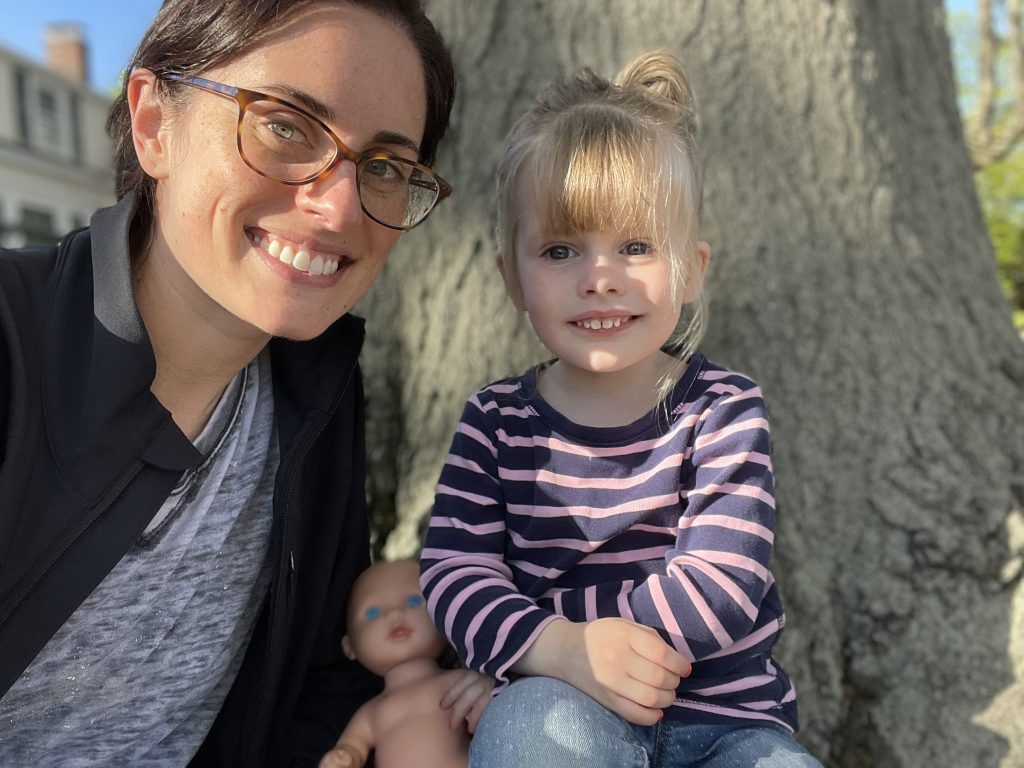Pulitzer Prize-Winning Alumni Reflect on Good Storytelling

What does it mean to be a Pulitzer Prize-winning investigative journalist, and what does it take to become one?
Two of the five Boston Globe reporters awarded a Pulitzer Prize earlier this year for their investigative series uncovering states’ failure to keep dangerous drivers off the roads –alumni Evan Allen ’11 and Brendan McCarthy ‘04 – shared their experiences with their alma mater Thursday, September 30, in a virtual event hosted by the Journalism and Writing, Literature and Publishing (WLP) departments.
Related: Two Emersonians Part of Boston Globe Pulitzer Prize-Winning Team
“Where Journalism Can Take You: Investigation and Impact” was the first entry in a Journalism Dialogue Series being offered this fall. It was moderated by Associate Professor of Journalism Mark Leccese.
Emerson Today gathered some of the highlights of their conversation:
On the job:
Evan Allen: I love this job for a lot of reasons, but I think the biggest one for me is this is a job, where, when I see something that feels unfair or overlooked, I can actually do something about it. It’s a job with a lot of power. I feel like we’re always on the side of the little guy or the underdog a lot of my work deals with people who are powerless are voiceless or marginalized in some way. I deal a lot with people who have a whole constellation of different issues going on— in the world of addiction, or poverty, crime, the courts, police involvement—all this stuff. These are people that the wider world is not really paying much attention to; nobody really cares if something bad happens to them, they often just don’t have any way to fight back against things so what I like is that we can really “afflict the powerful.”
Brendan McCarthy: What I love about Evan is her moral compass, and what we can do and strive to do through our journalism that’s for the greater good. That’s why I wanted to do this work. Now, how? I thought that was through newspapers. But everything changed a few years in with a pivot to video—that’s how it is in this business, every few years with new things of the moment. I decided to try different things so long as I had the chance, through whatever platform or medium that was, to do the stories that would make an impact or make change.

On tight writing and learning to let go:
Allen: My rule, I think, is that you can measure how good a story is by how much you cut out of it, and by that I mean, I would say that maybe 5 percent of what I know goes into the story, but it’s like the best 5 percent. In the Blindspot report, we left so many beautiful anecdotes and quotes and all these different things just on the cutting room floor. It was sad to see them go, but you have to kill them because you’re already pushing it with 6,000 words.
On what it takes:
McCarthy: What we do marries investigative reporting with storytelling. So, when I hire, I’m looking for a bunch of things, like folks with a really stiff spine who can take getting thrown out of city hall or yelled at by politicians and have the ability to just say, “Whatever.” That’s not everybody, because having a real showdown interview takes a certain kind of spine. I also look for a strong moral compass and sense of moral outrage, and a drive to change the world. Another thing we look for is the ability to just simply tell a story – can they make it captivating?
On doing the work:
McCarthy: I often suggest that journalists should do a beat on crime or courts early in their career. The ability to cover a community, soup to nuts, is really important, and crime and courts is a beat where you can learn how to get a document and how a system works. Looking back at my crime reporting days, I don’t relish these moments, but in hindsight, I think about how much they made me the person who I am and gave me the ability to do this work.
Allen: It takes really intense, hard work to do good investigative work. there are a lot of things in your career that you can’t control. You can’t control how lucky you are, you can’t control how naturally good a writer you are — you can’t control all sorts of things. But you can control how hard you work. My biggest successes have come because I was willing to, for example, stand outside in the rain for six hours in front of a literal puddle of vomit outside of a center for people who are addicted and homeless, waiting for a person who I thought might be inside. She came out, and I was soaking wet, but she talked to me and I found her before the police did. So we went down in this basement, and we talked, and I got the story just because I was there first.
Allen: One of the things about crime beat that I’m always shocked by is how people will just invite you into their homes on the worst day of their life and they’ll sit with you. People have shown me what’s in their diaries. They’ve taken me into their murdered child’s closet and pulled out everything just to show me what they treasure the most. It’s a very intimate view of people’s lives that is very meaningful for them to share. A lot of times, no one else is looking at them, but here you are, and you want to hear their story, and they want to share it with you, so it’s made me very humble, and a better person. It’s a good way to see different lives that you wouldn’t ordinarily come in contact with.
On telling a story well:
Allen: To write a story, I need to know where it’s starting, where it’s ending, and the reason that the story exists. What is the sort of larger human question at the heart of the story? I also need to know what my character’s obstacle is and how that will change through the course of the story, which is the plot. The plot is an undercurrent so you need to embed the tension that is going to run through your story in the top so people can see what your character wants, but what’s going to stand in their way.
McCarthy: When creating a story, the words on the page are the least of my worries. I’m looking for the heart of the story. We talk often in scenes, like with index cards, and when we get stuck, sometimes we can take those kind of index cards or scenes and rejigger them around. But if you have that theme or that tension that drives you through, then oftentimes when you find that right spot with an editor and reporter early on, then you’re driving toward the same place.

On making yourself uncomfortable:
McCarthy: Looking back—and I didn’t realize this as a young man, necessarily—I think the thing that helped me maybe the most in my journalism career was working in communities and writing stories about people who were not like me. It was tough and challenging, but to cover crime in North Philadelphia, or to land in New Orleans post-Katrina and tell these stories not only changed me as a person, but really sharpened skills that I didn’t even understand as a young novice reporter. So, I would say go and lean into places which you are not necessarily passionate about.
On not knowing anything:
Allen: I think at the beginning of any project, there’s a period of time that can range from a couple [of] days to sometimes a couple [of] months where you feel like you don’t know anything. You don’t know what you don’t know, and you don’t know what you do know. Not knowing anything—that’s how you ask good questions. I never worry about looking stupid because I’m asking an obvious question. If you start worrying about looking stupid or looking like you don’t know anything, then you’re going to start making mistakes. I ask people to explain this to me like I’m 10 years old.
On the inherent sexiness of trucking:
McCarthy: Even the trucking story that Evan wrote may not be inherently sexy. [T]he heart of that story, though, is about a huge massive failure of the people in power to keep us safe for decades…
Allen: …I mean the thing at the heart of trucking is 100,000-plus-pound trucks barreling down the road like…!
McCarthy: (Looking over at Allen) She says she’s not passionate about trucking but now listen to her!
Categories